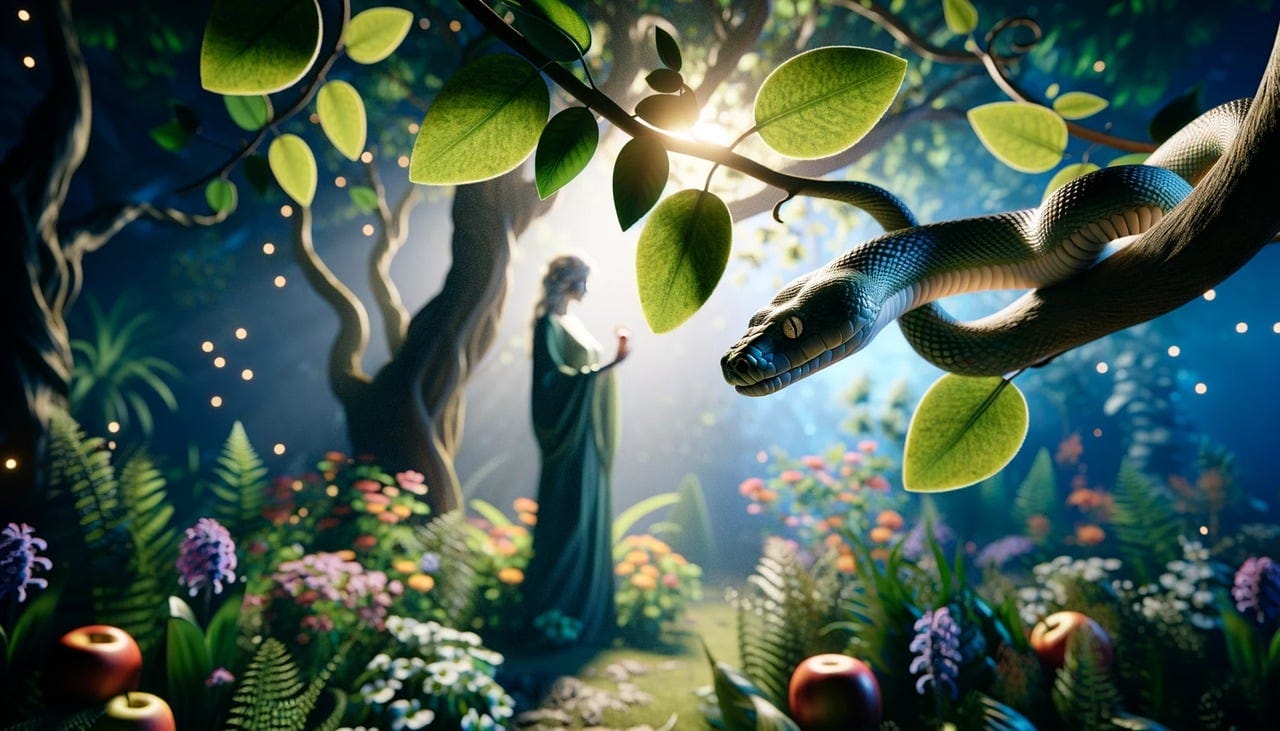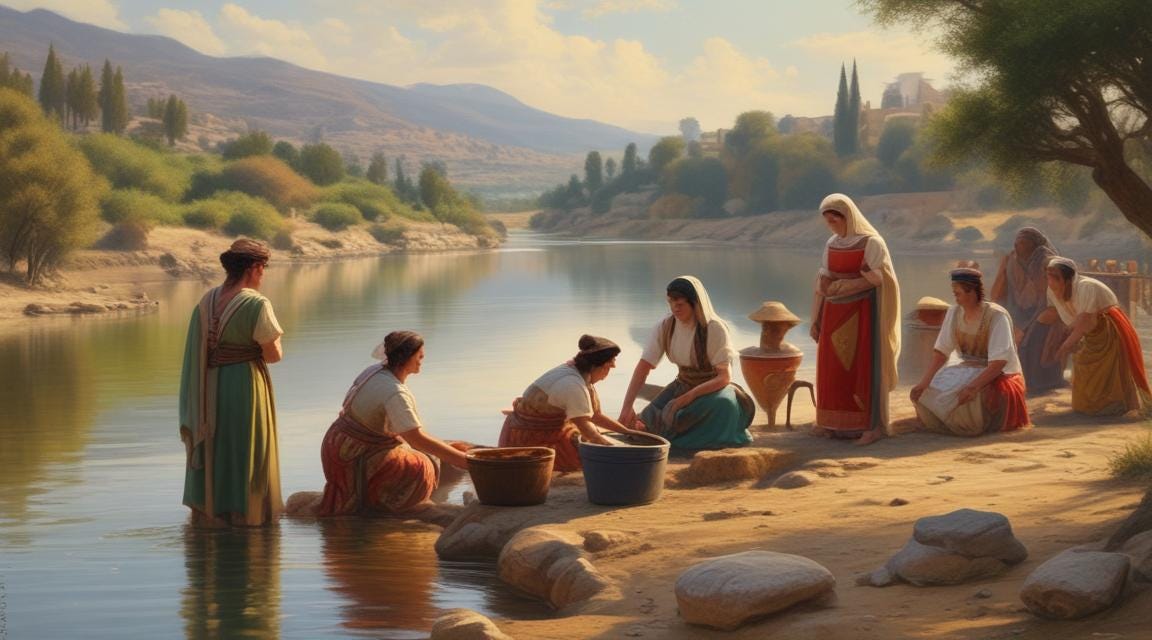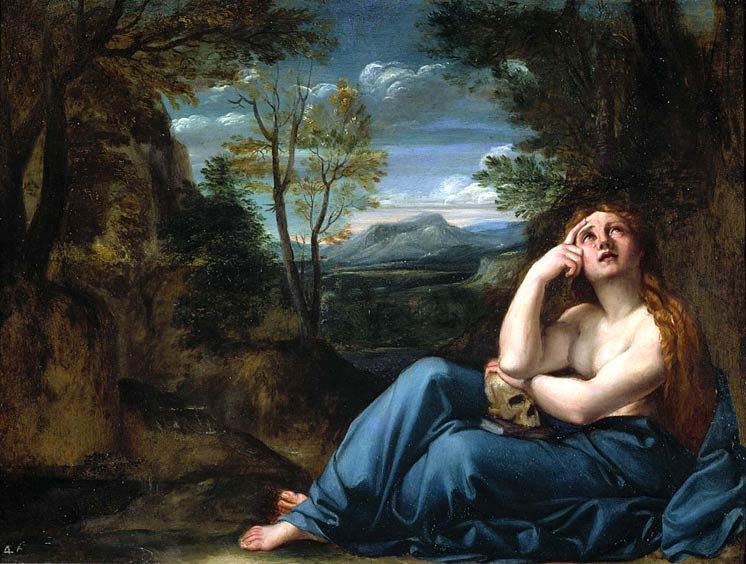Finding Mary Magdalene
My journey through Christianity and paganism to connect with a powerful, biblical, Divine Feminine archetype
A big welcome to new subscribers if you’re just joining us here at Secrets of a Magical Life! From mythic archetypes and psychic sensations to mystic experiences and otherworldly relations, this is a place to explore the magic of being human.
Blessings and HUGE gratitude to all my paid subscribers—you make this creative space possible! Thank you from the bottom of my heart for your contribution to my work, to my life, and to this beautiful, burgeoning community. I appreciate you more than I can say.
When Christianity is a Choice
I love the way my mom introduced me to Christianity. She talked about God when I was little, but we only went to church a handful of times. I remember the flickering candles on Christmas eve and the fancy dresses wore at Easter. I remember hating Sunday school because all the other kids were friends and I felt like an outsider. But I remember loving church camp because the camaraderie of the week finally made me feel like I belonged.
Like so many children raised in the West, I was immersed in the stories, legends, drama, and lessons of Christianity from a young age. One of my best friends was a Jehovah’s witness, and she gave me a book of Bible stories that I cherished. I read it inside and out, over and over again, loving every melodramatic word of it.
My parents never urged me to believe anything… never made us go to church until my brother and I were old enough to think for ourselves. I was thirteen and my brother was ten when my mom announced that we’d be going to church on Sundays. For a year, she brought us religiously. I still don’t know if it was her own revival of faith or a mother’s intuition that forcing us to go to church would offer us a choice no outside explanations could.
Every Sunday of my freshman year of high school—whether we wanted to or not—Mom dragged us to church and sent us to Sunday school to learn about faith. In the car on the way there, the three of us enjoyed lively discussions about the aspects of the religion that weren’t making sense. There were many questions that year for which she had no answer.
At the end of the year, in part out of sheer teenage laziness, my brother and I decided not to continue going to church, and Mom didn’t force us. But that gentle introduction opened a door for me, and my walk with Yeshua began.
Jesus—or J, as I cheekily like to call him—was one of my first spiritual guides and companions. He was a light in the storm of high school that helped guide and open me to new magic… new possibilities.
Discovering the Goddess
Yet shortly after my awakening into Christianity and being re-baptized in the church as a choosing adult, I discovered paganism. I blame The Mists of Avalon—my first foray into visionary fiction—for it’s signature line, which is actually a quote from Dion Fortune.
“For all the Gods are one God… and all the Goddesses are one Goddess.”
This idea struck a deep chord for me. Not only did it explain the seemingly bizarre historical propensity for polytheism with a simple, logical concept… it brought to light something that felt like it had all ways been missing for me.
… A girl version of God.
As a little girl, I’d always favored female characters. In an era when characters in stories were dominantly male, my unequivocal favorite was always the token girl in every story. There was something relatable that I couldn’t put my finger on… something simply missing from male characters.
The Goddess was the same. Once I learned She existed, there was no way to ignore the idea that the Divine Force in the Universe could be female.
Though the Holy Spirit herself is supposed to be feminine and most theologians agree that God is beyond gender… Christianity is a religion jealous of other gods, and the journey to reconcile these different parts of me would last the next decade. Through high school I flip-flopped between studying Ancient Greece and reading the Bible… between clearing my chakras and praying by the flagpole at school… between casting spells and giving my life to Jesus.
Until at last, I sifted through the Biblical detritus to find something new.
Monday, July 22nd is Mary Magdalene’s Feast Day!
I’ll be hosting a special edition Heretic Happy Hour where we explore the Wisdom, power, and beauty of Mary Magdalene.
Whether you have a special affinity for Mary Magdalene or you’re curious to learn and explore her energy and archetype, join us for an hour of magic and connection.
— EVENTS ARE FOR PAID SUBSCRIBERS —
UPGRADE NOW FOR ACCESS
Women in Christianity
Like all the stories I grew up with, the women in the Christian tradition were mostly side-characters. While I was used to that in the media, Biblical women were either cast as malicious and scheming or so pious as to be completely unrelatable as an actual human.
While Yeshua was clearly the hero of the story—dodging Romans, casting out demons, and generally bringing a big party with him everywhere he went—I also loved, admired, and was intrigued by the other heroes of the Bible, who seemed so interesting and full of life.
Daniel was such a good guy that everyone had it out for him. They had to enact a new law just to get him into trouble, but when they sent him to the lion’s den, he befriended the wild creatures and showed everybody up. Now, that’s cool!
Ancient rockstar, David, faced down the giant Goliath and then took on the even bigger task of ruling a kingdom of Israel. I was fascinated by the fact that he cheated on his wife but somehow still went down in history as a great man. How could that be?
The disciples each had a different background and personality, and though many of them were relatively unremarkable, as a group, they followed, supported, and learned from J’s teachings thick and thin.
Meanwhile the women in the stories were luring their fathers to their beds, being sold off into marriage, or simply standing invisibly in the background as men performed heroic or horrible feats. Where was Issac’s mother when Abraham took her baby up the mountain to be sacrificed? I want to hear the version of the story where she breaks in and stops her crazed husband, and Abraham understands her actions to be the hand of God.
I understand that these stories are the product of their times. I also understand better than most that an arrogantly patriarchal society overthrew the Jewish culture of early Christianity, irreparably coopting and transforming the Faith of Yeshua into something unrecognizable.
Still, if we read between the lines to the stories hidden beneath the patriarchal bias, we should be able to find a female archetype worthy of the same appreciation as David, Daniel, and Yeshua.
Searching the New Testament
The new testament is kinder to women than the old. At least, the women who followed J were generally cast in a favorable light. But while they’re present in all the stories, they’re just referred to as “the women”.
How about we put the other side of the story back in…
“Everyone recognized the significant contribution of The Women as we traveled, following Yeshua’s teachings. Without them, we would have no bread to eat nor clean clothes to wear. Our tents and bags, which they carefully packed and unpacked each time we set up camp, were tended with an efficiency and calm that made the work they did nigh-invisible. We could not help but love and appreciate them for it.
They went to great pains to gather food to feed the crowds of those who came to listen, but most of all, they made certain Yeshua and those closest to him were nourished, for he did not always have a mind for the needs of the body. These, and many other tasks were theirs, and for that we were grateful, for it allowed us the freedom to sit at the feet of our Lord and listen to his great Wisdom.”
—Excerpt from The Fictitious Gospel of A Man Who Was Paying Attention
Meanwhile… one of the women was different. She wasn’t washing clothes and cooking food but instead was sitting at J’s feet learning with the boys.
She was Miryam, known as Mary Magdalene.
Nobody really knows who she was. Maybe she came from a town called Magdala, on the sea of Galilee or maybe she was Mary, sister of Martha and Lazarus, as folks in France believe. There are speculations that Magdalene was a title rather than a surname and theories abound relating to her role in the personal life of Yeshua.
There’s a lot we don’t know and will never know. But if you simply put back the texts from that time (and not just the Gospels voted into the Bible by the Council of Nicaea), we get a picture of a woman who proved to be a quick study and understood Yeshua’s teachings in a way that the other disciples didn’t.
A few lines about Miryam that got left out of the Bible:
"Sister, we know that the Savior loved you more than the rest of women. Tell us the words of the Savior which you remember - which you know (but) we do not, nor have we heard them." —Gospel of Mary Magdalene
And the companion of the [...] Mary Magdalene. [...] loved her more than all the disciples, and used to kiss her often on her [...]. The rest of the disciples [...]. They said to him "Why do you love her more than all of us?" The Savior answered and said to them, "Why do I not love you like her? When a blind man and one who sees are both together in darkness, they are no different from one another. When the light comes, then he who sees will see the light, and he who is blind will remain in darkness." —Gospel of Philip
Finally, a female character from the Bible capable of holding her own among the men!
Come explore the Wisdom, power, and beauty of Mary Magdalene at our special edition Heretic Happy Hour. Join us on Monday, July 22nd for an hour of magic and connection in honor of Mary Magdalene’s Feast Day!
— EVENTS ARE FOR PAID SUBSCRIBERS —
UPGRADE NOW FOR ACCESS
Connecting with Mary Magdalene
My journey with Mary Magdalene began when I was living in France. My grandmother invited me to join her on a wild adventure tracing the Miryam’s alleged footsteps through Provence. I didn’t know much about this sainted and maligned woman at the time, but Gammie had been researching the recovery of the Feminine voice in Christianity for years. She’d discovered a legend claiming Mary Magdalene landed on the shores of France after the death of Christ and was determined to find her.
We set off across the landscape on the trail of mystery, following rumor and story. We visited the windswept shores of Ste. Maries-de-la-Mer, where Mary was said to have landed in a boat with no oars and no sails. We climbed to the ancient grotto of Ste. Baume, where la Madeleine was said to have been daily visited by angels. We spent hours in the peaceful Basilica, which is said to house the skull of Miryam herself. Over ancient stones and through the windswept valleys of the sacred South of France, we searched for the lost lady of the Bible.
In the end, I found myself staring at a statue of Miryam at the foot of the cross, lines of anguish etched into her beautifully feminine features. Her emotion was obvious. Her connection with Yeshua clear. Her teachings too profound to grasp fully… even now, years later.
Face to face with this sainted figure—who was never a whore, only a woman who had loved and lost—I found the archetype I’d been looking for. She was a woman who had found enlightenment and faced persecution for it. A woman who believed in magic—real magic—and had the courage to wield it. A woman who could be a role-model and a guide for someone like me, a seeker who needed a woman’s touch to truly feel at home.







The first time I read the Bible cover to cover I was surprised by the description of Sophia in Proverbs 8. Women are an afterthought in the Bible, which is why I appreciate books like Anita Diamant’s “The Red Tent”. It would be neat if there was a novel like that detailing Sarah’s perspective.
I took a class about women in early Christianity in university and wish I had been more passionate about it at the time, but I was still at the beginning of my spiritual journey and was overcoming my hurdle of agnosticism. I always love learning more about your own journey though!
As a little girl, I’d always favored female characters. In an era when characters in stories were dominantly male, my unequivocal favorite was always the token girl in every story. This really struck me Allysha, as though you knew even then you would question this until you discovered the truth that made sense to you.